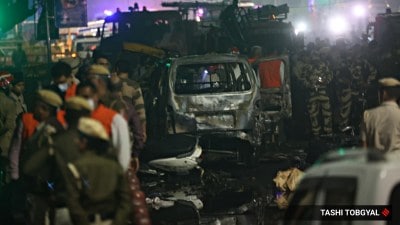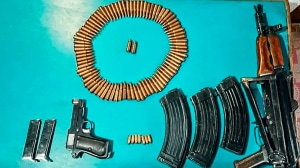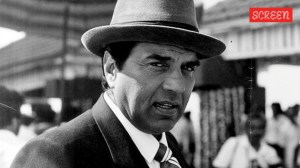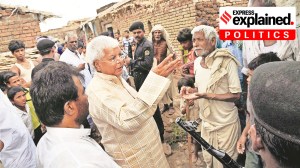Zarqawi’s legacy of terror has many claimants
Abu Musab al Zarqawi, the man who put a face on the Iraqi insurgency, is dead, but the question that looms unresolved, however, is how large a blow this deals to the guerrilla movement he helped drive to such bloody limits.

Abu Musab al Zarqawi, the man who put a face on the Iraqi insurgency, is dead, but the question that looms unresolved, however, is how large a blow this deals to the guerrilla movement he helped drive to such bloody limits.
The most likely answer, according to US and Iraqi officials and experts who have been following Zarqawi, is this: While his death could degrade the ability of his group, Al-Qaeda in Mesopotamia, to mount bloody suicide and car bomb attacks, and may set off a bloody succession struggle, the insurgency and sectarian war that he helped ignite will carry on without him.
It was Zarqawi, in a letter obtained by US forces in 2004, who first called on Sunni insurgents to turn their sights on Shi’ites, saying that a ‘‘sectarian war’’ was the only way they could win in Iraq. The bloodlettting in Iraq is now unfolding so quickly that it appears to have a life of its own, with hundreds of burned and bullet-riddled bodies turning up each week at city morgues. And the Sunni-led insurgency is so diffuse and so broadly based that it seems unlikely to be stopped by one death, even that of its most visible leader.
The Al-Qaeda organisation that Zarqawi leaves behind in Iraq is a far-flung and decentralised collection of semi-autonomous terrorist groups, each operating more or less independently. To date, at least 60 different groups have carried out attacks against Iraqi and American targets under Al-Qaeda in Mesopotmia’s name.
Other insurgent groups in Iraq have little or no relationship to Al-Qaeda, including some of the largest, like Ansar Al Sunnah and the Islamic Army of Iraq. Some of them are Al-Qaeda’a deadly rivals. What is more, Zarqawi, a Jordanian, had apparently begun to hand over the leadership of his organisation to Iraqis. He had also begun to set up what his comrades described as a framework for a future Islamic government in Iraq: In January, Al-Qaeda in Mesopotamia announced that it had joined the Council of Holy Warriors, a collection of seven insurgent groups headed by an Iraqi, Abdullah Al Baghdadi. Most senior leaders around Zarqawi are now believed to be Iraqi.
Some Iraqi officials said they expect a bloody struggle for control of Al-Qaeda now that Zarqawi is dead. One sign of cracks in the group’s unity came when American officials, in their statement announcing Zarqawi’s death, said they had relied on ‘‘tips and intelligence from Iraqi senior leaders from his network’’.
If true, such an intelligence coup could spell an infighting within Al-Qaeda, as surviving members begin to suspect one another and fear for their lives. A similar thing happened among the senior leaders of the terrorist group clustered around Abu Nidal in the 1980’s, when assassinations of senior members ignited a bloody struggle in the ranks.
DEXTER FILKINS
Reactions
FAMILY: Abu Musab al Zarqawi’s older brother, Sayel al Khalayleh said, ‘‘We (family) anticipated that he would be martyred for a very long time.’’
AL-QAEDA: ‘‘We want to give you the joyous news of the martyrdom of the Mujahed Sheik Abu Musab al Zarqawi,’’ said the statement, signed by Abu Abdel Rahman al Iraqi, identified as the deputy leader of Al-Qaeda in Iraq.
USA: President George W Bush said Americans ‘‘can be justly proud’’ of US fighting men and women. His death ‘‘is a severe blow to Al-Qaeda and is a significant victory in the war on terror,’’ said Bush.
JAPAN: ‘‘It’s a step forward,’’ said Japanese Prime Minister Junichiro Koizumi.
AUSTRALIA: Prime Minister John Howard said it’s ‘‘great news’’ for Iraqis, ‘‘the real victims of his murderous behaviour”.’
PAKISTAN: Foreign Ministry spokeswoman Tasnim Aslam said, ‘‘It is a significant development in the war on terrorism and Pakistan continues to hope that the security situation will, particularly now, improve.’’
INDONESIA: “The death of al Zarqawi does not mean the end of the struggle,” said Fauzan Al Ansory, aide of Abu Bakar Bashir, now in jail for the Bali bombings.
—Agencies



- 01
- 02
- 03
- 04
- 05




























